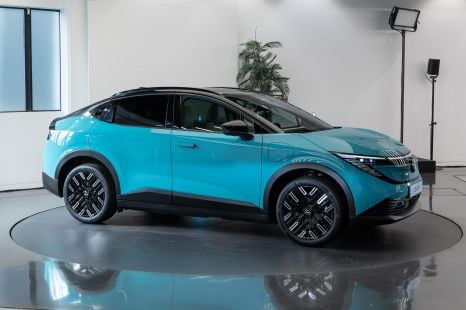

Neil Briscoe
2026 Nissan Leaf gets over 600km of range, SUV shape
3 Months Ago
The new Nissan Leaf is a Small Luxury offered in a 5D hatchback body style. Available in Australia from $50,990 (MLRP, excl. on-roads) for the Base variant and topping out at $61,490 for the E+.
There are 2 variants of the Leaf available in Australia and this generation went on sale in January of 2025.
The Nissan Leaf is only available with an electric motor that produces 110kW and 320Nm of torque. All variants feature front-wheel drive.
The new 2025 Leaf is offered with a 10 year, 300,000 km warranty.
Quickly see how this car stacks up against its competition. Select any benchmark to see more details.
Where expert car reviews meet expert car buying – CarExpert gives you trusted advice, personalised service and real savings on your next new car.
| Configuration | Price From* |
|---|---|
| Automatic, 5-door Hatchback, Electric, FWD | $50,990 |
| Configuration | Price From* |
|---|---|
| Automatic, 5-door Hatchback, Electric, FWD | $61,490 |
Where expert car reviews meet expert car buying – CarExpert gives you trusted advice, personalised service and real savings on your next new car.
See our comprehensive details for the Nissan Leaf
The dimensions shown above are for the base model.
See all 2025 Nissan Leaf DimensionsWhere expert car reviews meet expert car buying – CarExpert gives you trusted advice, personalised service and real savings on your next new car.
CarExpert High Resolution Photos of the Nissan Leaf
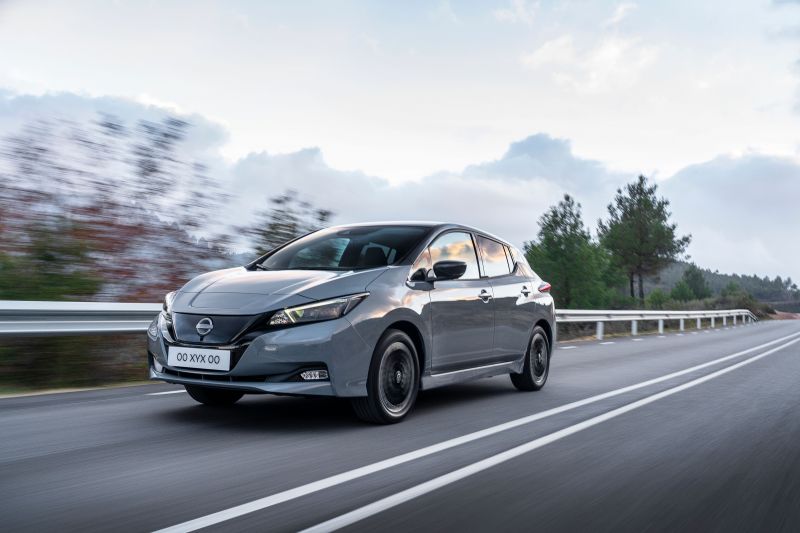
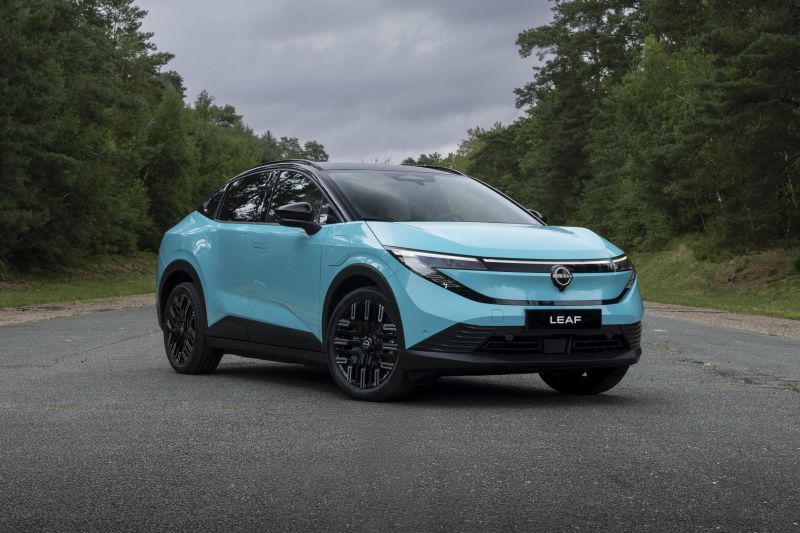
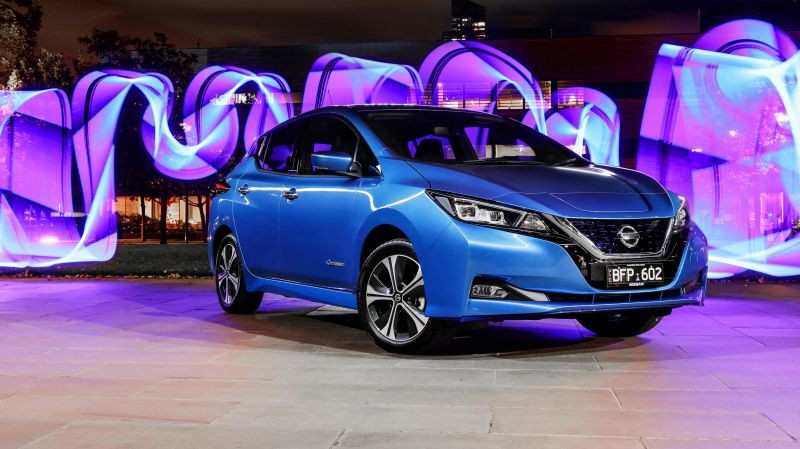
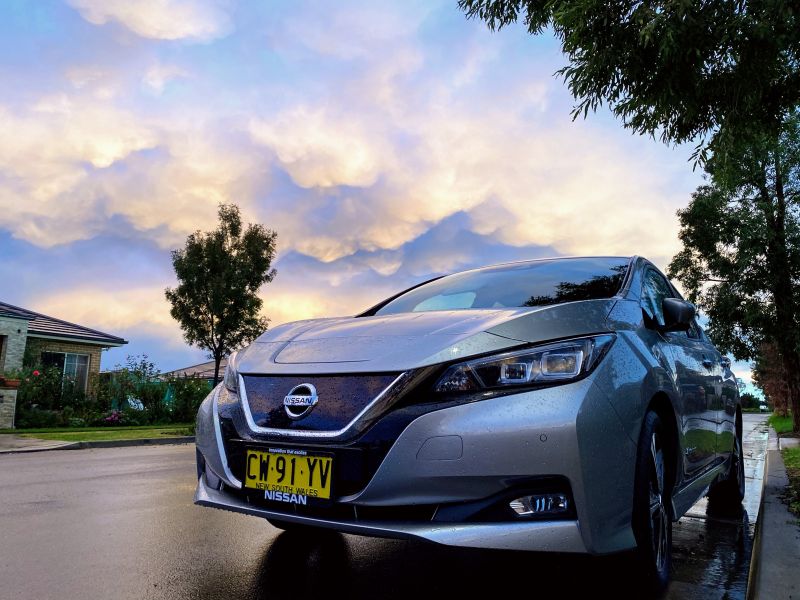
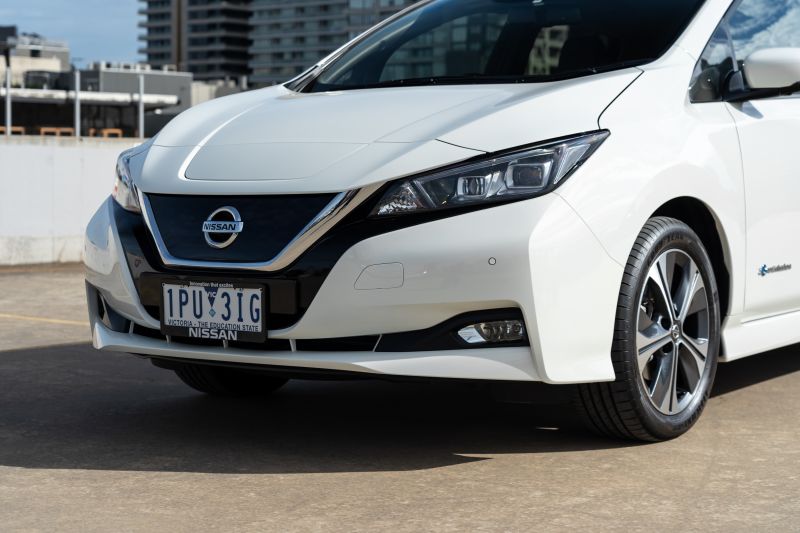
View 5 images
| Nissan Leaf | Fuel Type | Combined |
|---|---|---|
| Automatic, 5-door Hatchback, Electric, FWD | Electric | - |
What are the running and servicing costs of a Nissan Leaf?
The Nissan Leaf has a recommended service interval of 12 months or 20,000 km, whichever comes first.
What is the warranty on a Nissan Leaf?
The Nissan Leaf offers a 10 year 300,000 km limit warranty. This is separate to the warranty on offer under Australian Consumer Law which can be greater for certain parts based on what is deemed as a reasonable period of time.
Where expert car reviews meet expert car buying – CarExpert gives you trusted advice, personalised service and real savings on your next new car.
The cheapest Nissan Leaf is the Base that starts from $50,990.
The most expensive Nissan Leaf is the e+ that starts from $61,490.
The best towing capacity of a Nissan Leaf is null kg offered by the following variants: Base and e+.
The largest Nissan Leaf is the Base which measures 1788mm wide, 4490mm in length and sits 1530mm tall.
The most powerful Nissan Leaf is the e+ which has 160kW of power from its null engine.
The Nissan Leaf is built in Great Britain and shipped to Australia.
The heaviest Nissan Leaf is the e+ which weighs 2140 kg (kerb weight).
The Nissan Leaf uses electric.